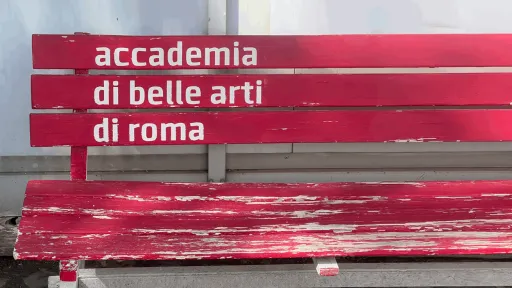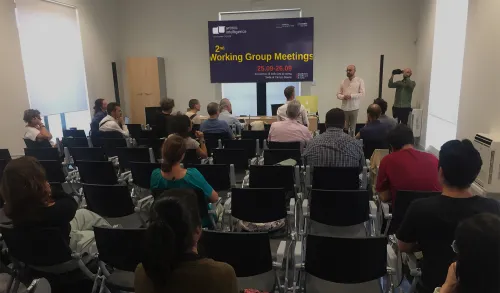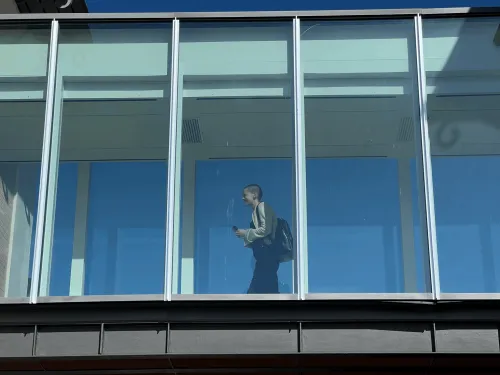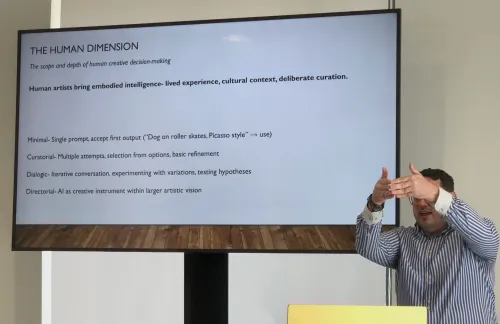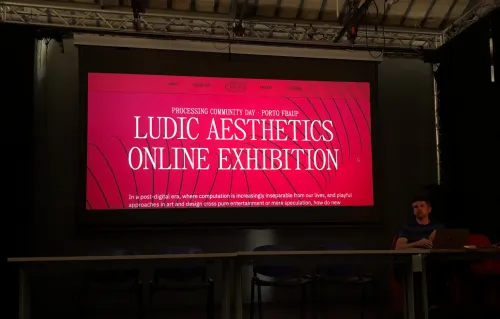Artistic Intelligence Working Group Meetings — Rome, 25–26 September 2025From 25–26 September 2025, members of COST Action CA23158 – Artistic Intelligence gathered at the Accademia di Belle Arti di Roma for a two-day series of meetings and events exploring the intersections of art, artificial intelligence, and cultural innovation with the shared goal of coordinating the application of new computational techniques, such as ML/AI, to artistic and practice-based research. The event hosted parallel sessions by three of the Action's four Working Groups - WG1: Adaptation Strategies, WG2: Collective Intelligences, and WG4: Policy Making & Recommendations - each addressing distinct yet interconnected aspects of artistic research and AI. Discussions and presentations ranged from AI-enhanced authorship and creative symbiosis, to collective creation and immersive audience participation, and ethical, legal, and policy frameworks for AI in the arts and cultural industries.
WG1 focused on advancing its work toward two key outcomes: the Roadmap for Test Runs, Simulations, and Feasibility Studies, and the Artistic Intelligence Toolbox. Through short presentations and case-based discussions, members shared examples and insights into how artistic research adapts to digital and algorithmic environments—whether through experimental methods, reconfigurations of artistic process, or hybrid collaborations. WG2 focused on the concept of Audience Science, and the power of audiences and visitors to be affected by artistic, cultural and creative work. Key questions included:
WG4 presentations were concerned with the policy and ethical dimensions of artistic intelligence, addressing topics such as Societal Impact of Artistic Research; the Legal dimension/challenges for AI in relation to Artistic Research, Art Practices / Cultural Creative Industries, including Copyright Challenges;
|
||||||||
|
The meetings also included joint sessions and a shared forum on shaping the Artistic Intelligence Toolbox, which will provide guidelines, referencing strategies, and practical resources for stakeholders. The programme coincided with parallel events that were part of the European Researchers’ Night , featuring interactive installations and performances such as °'°Kobi: Navigating the Universe of Knowledge, Tessela, and Enacting / Revealing Artistic Research. These public-facing events invited audiences to experiment with AI-driven creativity in digital and augmented reality environments, and interact with generative multimedia installations and spectroscopic imaging techniques.
|
|
This meeting is based upon work from COST Action CA23158 Artistic Intelligence, supported by COST (European Cooperation in Science and Technology). COST (European Cooperation in Science and Technology) is a funding agency for research and innovation networks. Our Actions help connect research initiatives across Europe and enable scientists to grow their ideas by sharing them with their peers. This boosts their research, career and innovation. |

